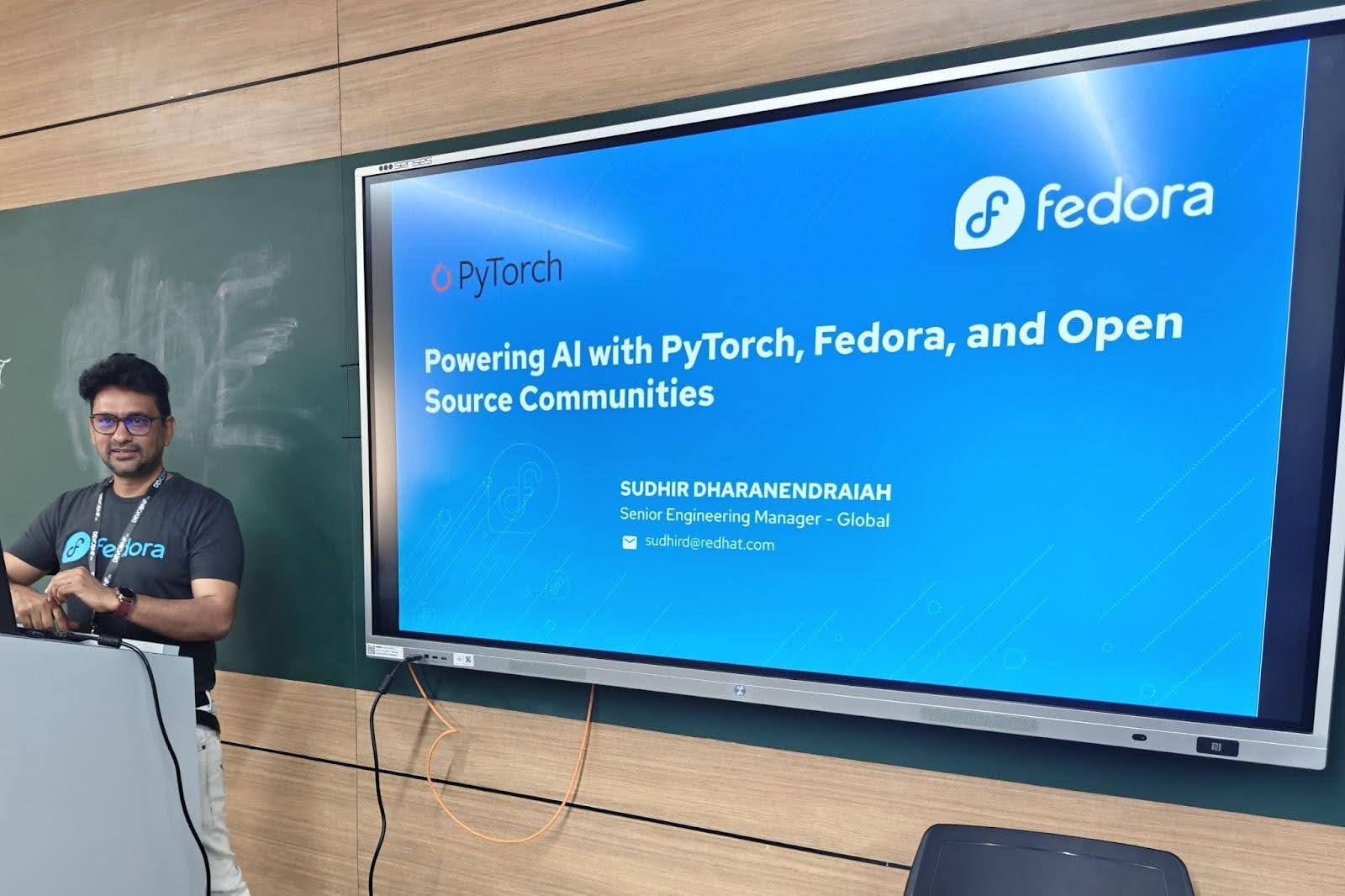
At DevConf.IN 2025 in Pune, I had the opportunity to host a PyTorch Meetup on February 28th. The session, titled “Powering AI with PyTorch, Fedora, and Open Source Communities” was aimed at introducing PyTorch to students and professionals, explaining why PyTorch+Fedora form an ideal AI development platform. The other key aspect I covered was collaboration between open source communities.
Introduction to PyTorch
The Power of Deep Learning made simple
With the explosion of GPTs, there is a renowned interest in the field of AI and ML. The myth of developing AI/ML technologies and its applications is rocket science and far-fetched, needs correction. Only open source has the power to demystify this myth and further evolve the technology to make it versatile and developer friendly. Since its inception, PyTorch has evolved and has been a driving force to make AI/ML development extremely simple. I covered the aspects of PyTorch key components, its features and why PyTorch is the best choice as a deep learning framework.
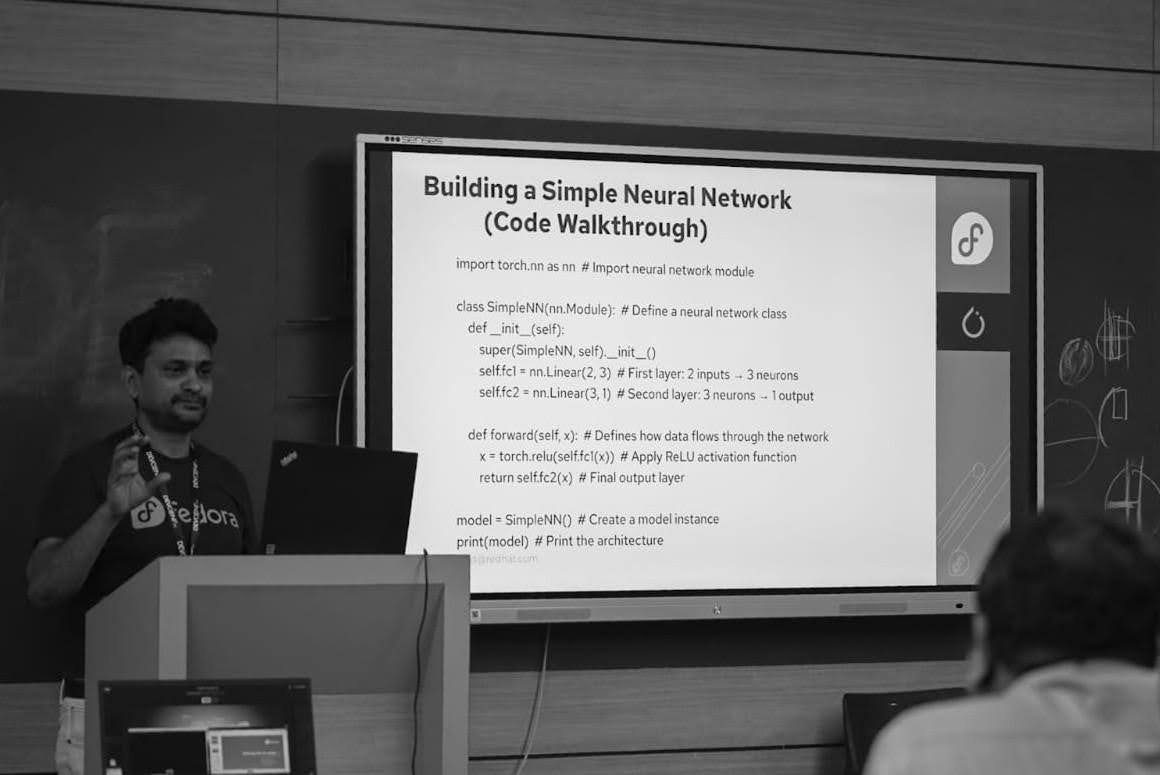
The codewalk through was designed to showcase how easy and simple it is to utilise the power of GPUs, creating a simple neural network and training the model. The code walkthrough was very well received and it was great to hear back from the attendees that they never knew how powerful PyTorch is for deep learning. The real world examples sighted how this powerful framework can be used beyond the common GPTs and has the power to influence across a broad spectrum of applications.
Fedora+PyTorch the Ideal AI/ML Development Platform
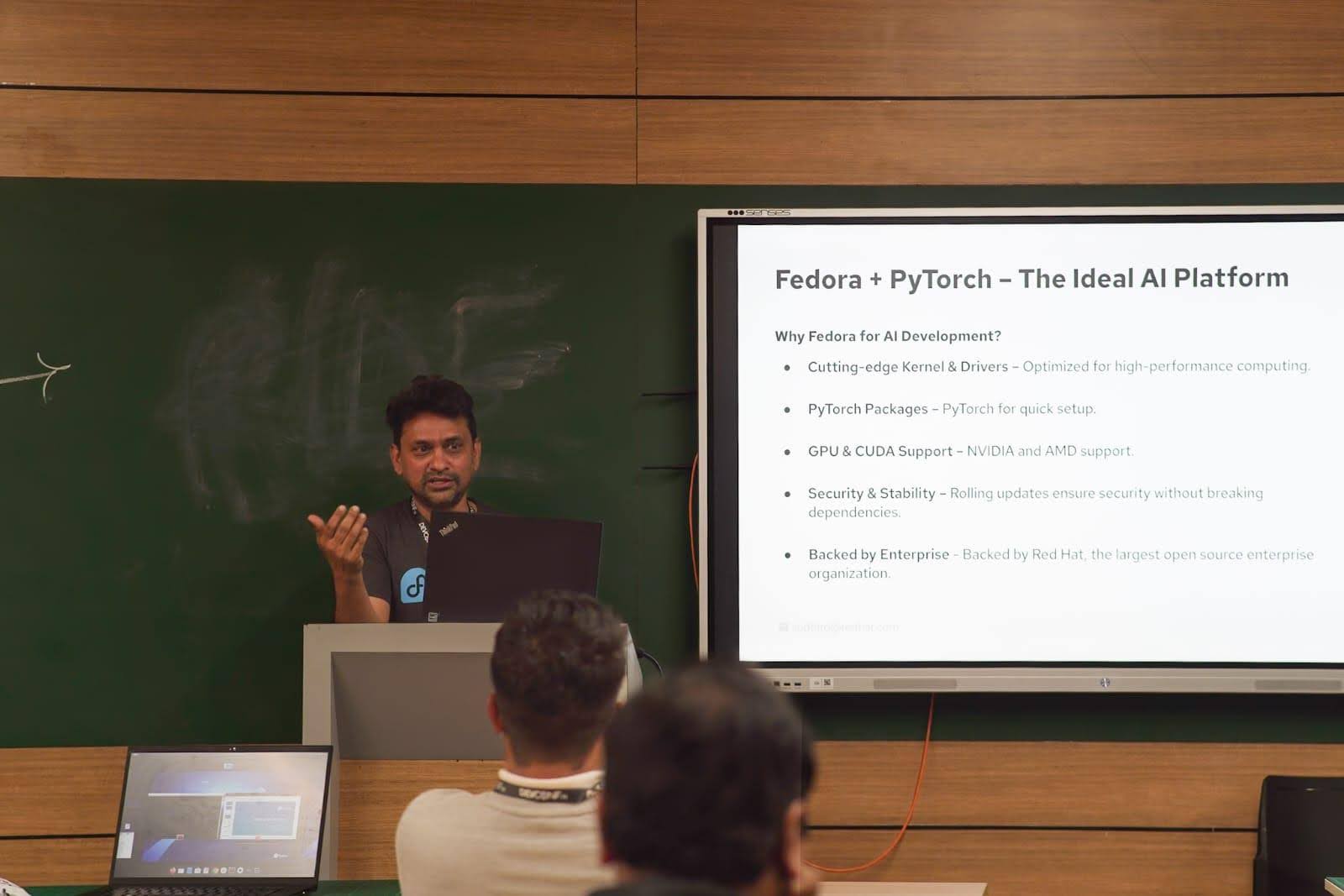
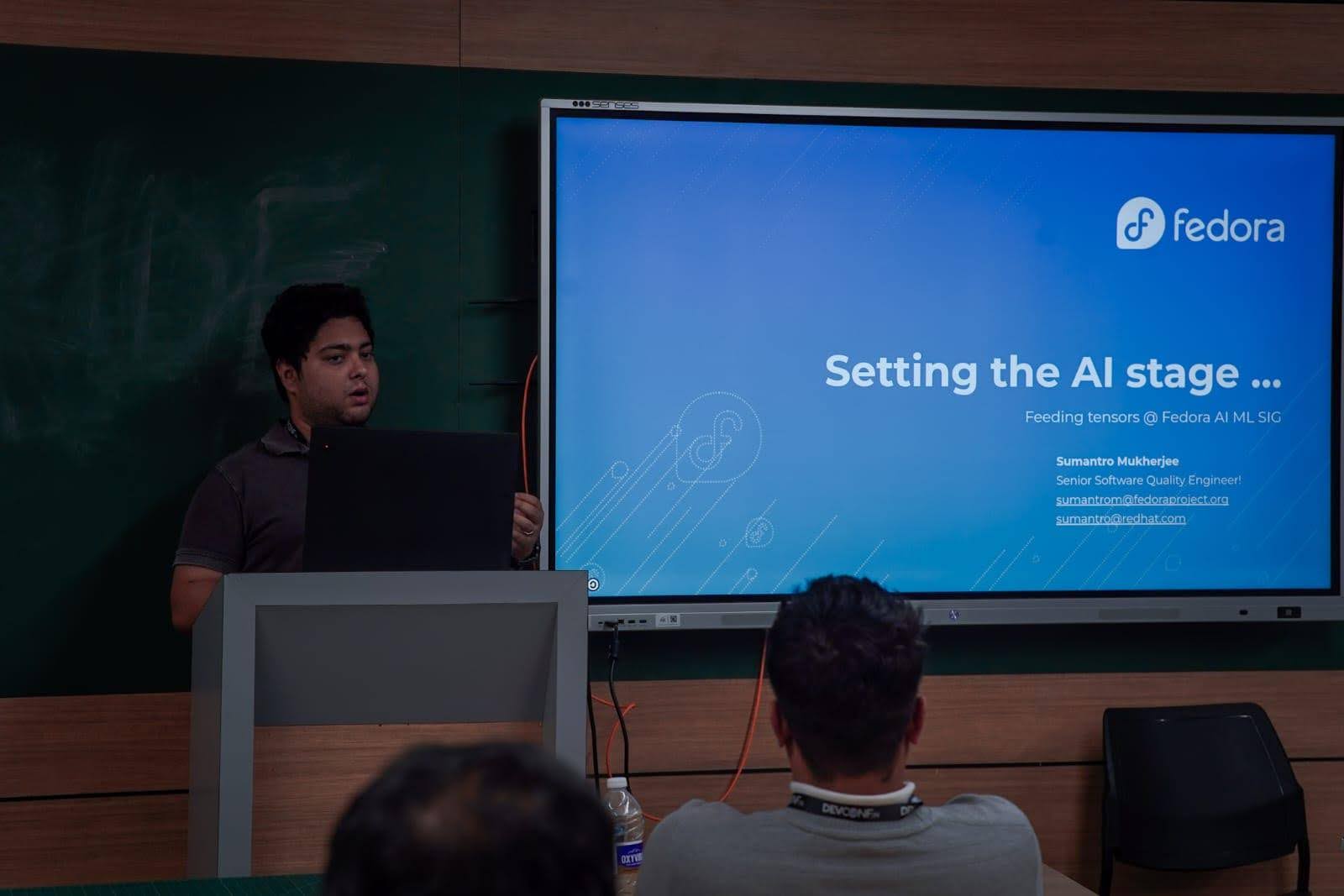
One of the highlights of the event was the discussion on Fedora’s role as an AI platform. Fedora’s reliability, flexibility, and strong community support make it an ideal partner for PyTorch, allowing developers to focus on model-building without worrying about infrastructure. The students were intrigued by the idea of contributing to Fedora’s AI/ML ecosystem while building their own projects. Sumantro Mukherjee spoke about the AI policy in Fedora and how one can start contributing to the AI/ML using Fedora as a platform. He highlighted how Fedora is evolving to meet the needs of AI practitioners. The idea that an open-source operating system could provide the perfect foundation for AI research sparked an engaging conversation.
Innovation in Open Source When Communities Come Together
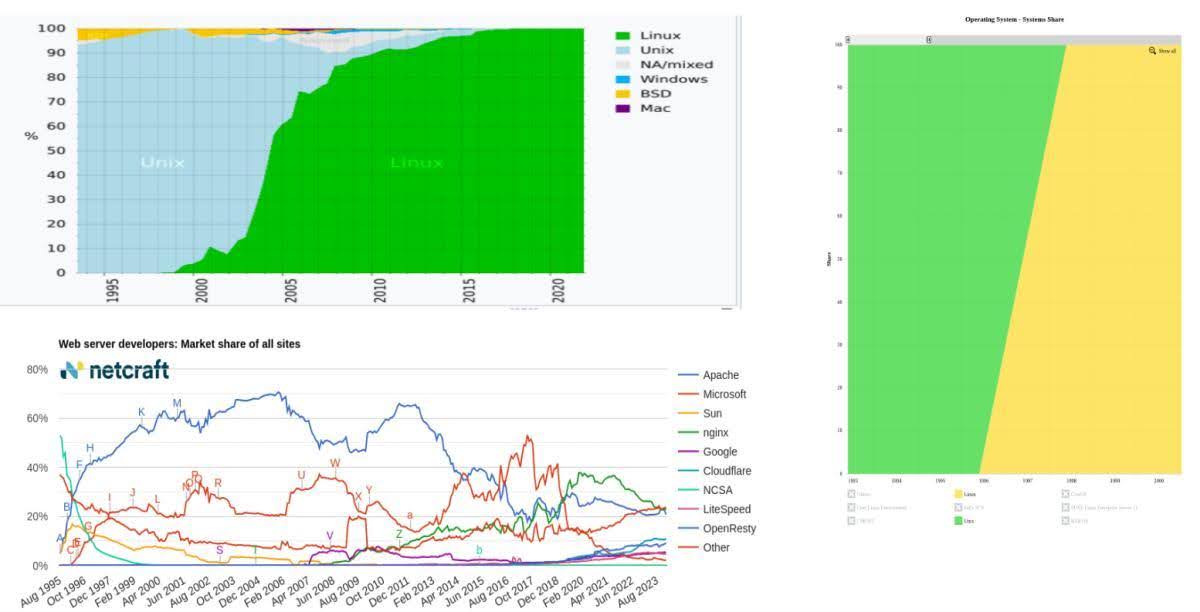
It is important that we learn from history and repeat the good things! When open source communities come together they can create seismic shifts in the industry. To drive this home, I took the audience on a journey through history, revisiting a pivotal moment when Apache and Linux came together, solving common problems and fundamentally reshaping enterprise computing. That moment was not just about technology; it was about collaboration. It was about two powerful communities recognizing that they were stronger together. Today, we stand at the cusp of another such moment - PyTorch and Linux, particularly Fedora, are coming together to shape the future of AI/ML. This is not just an opportunity but a responsibility for contributors, developers, and AI/ML enthusiasts to be part of this movement.
Looking Ahead
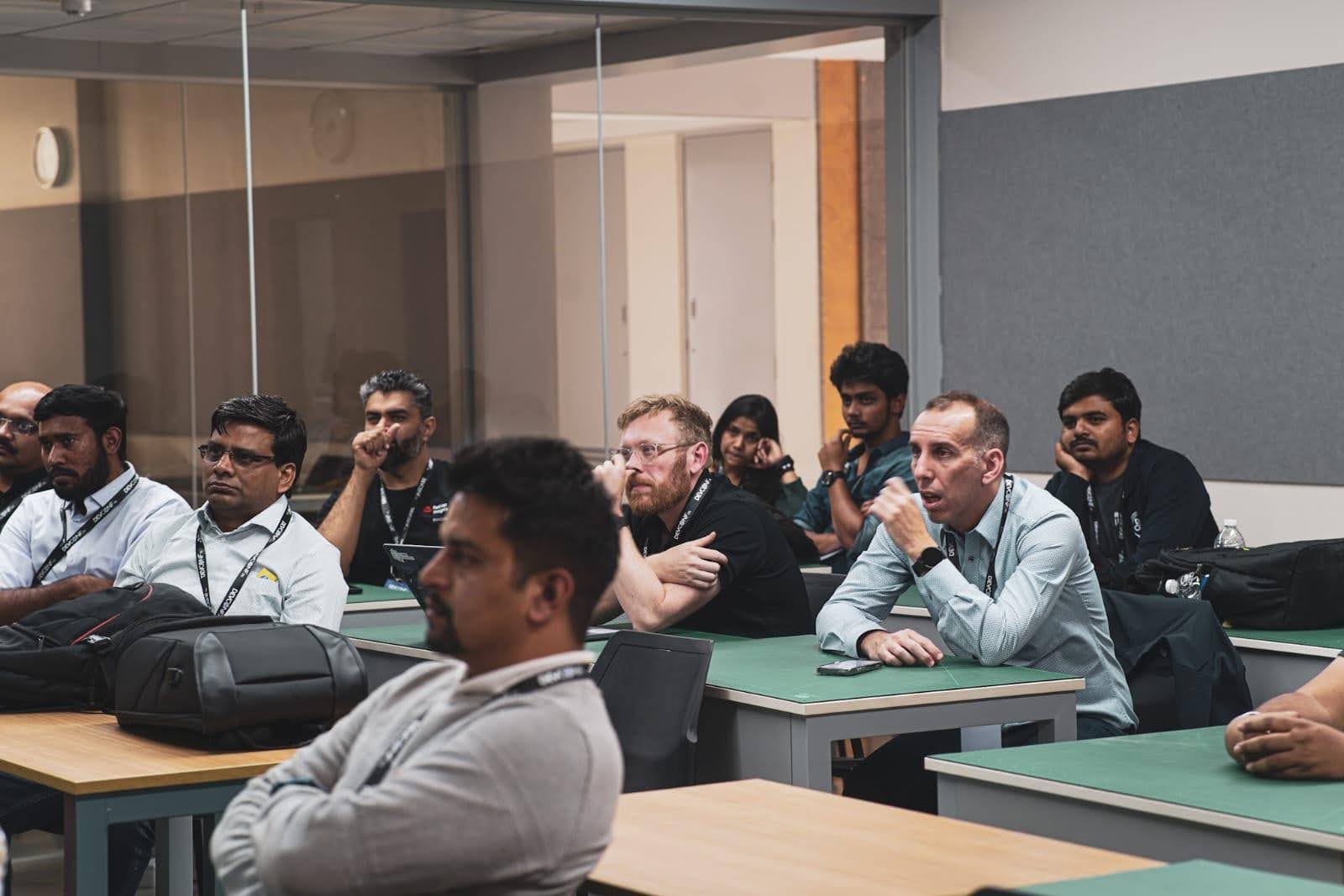
One of the best parts of the event was the enthusiasm it generated. Diverse audience, including students, AI enthusiasts, and industry professionals. Notably, Vincent Caldeira (CTO, APAC, Red Hat) and Chris Butler (Senior Principal Chief Architect, Red Hat) were present, reinforcing the growing interest in open-source AI/ML. Many students were eager to explore PyTorch and Fedora, contribute to open-source AI projects, and start their own AI experiments. Industry experts saw the potential for scalable, community-driven AI innovation. The session sparked curiosity and conversations that continued long after the event ended.
